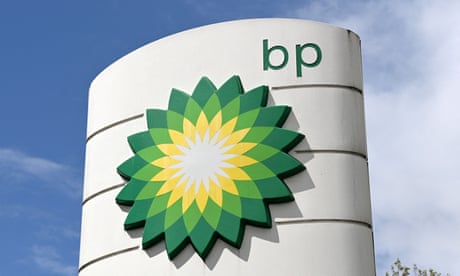The company also plans to operate the Asian Renewable Energy Hub, which aims to generate up to 26GW of wind and solar energy
Global fossil fuel company BP has bought 40.5% of a renewable energy hub in the Pilbara, billed as having potential to become one of the biggest suppliers of green hydrogen in the world.
The company will also operate the Asian Renewable Energy Hub, which has plans to generate up to 26GW of wind and solar energy – about a third of the electricity generated in Australia today.
Areh is in its early stages, but once complete – a task that will require up to US$30bn in funding – its backers expect it to be capable of producing 1.6m of “green hydrogen” from renewable sources a year.
No financial details of the deal were announced, with a BP spokesperson saying the amount invested was commercial in confidence.

However, market sources said that because Areh was at an early stage it was currently worth less than $100m.
BP and other investors in the project – InterContinental Energy, CWP Global and Macquarie Group – are betting on a rapid increase in demand for renewable energy.
Iron ore mining in the Pilbara is energy intensive and generates substantial greenhouse gas emissions, which big miners including BHP and Rio Tinto are keen to reduce.
However, Areh is also designed to export hydrogen to customers overseas.
BP predicts that at full capacity the Areh would be able to abate 17m tonnes of carbon a year.
The company’s executive vice-president of gas and low carbon energy, Anja-Isabel Dotzenrath, said Areh could become a “cornerstone project”.
“Areh is set to be one of the largest renewable and green hydrogen energy hubs in the world and can make a significant contribution to Australia and the wider Asia Pacific region’s energy transition,” she said.
“It truly reflects what integrated energy is – combining solar and onshore wind power with hydrogen production and using it to help transform sectors and regions.
“It also reflects our belief that Australia has the potential to be a powerhouse in the global energy transition, benefiting from both its existing infrastructure and abundant renewable energy resources.”
Areh’s existing backers will continue to own a stake in the project, with InterContinental Energy holding 26.4%, CWP Global 17.8% and Macquarie 15.3%.
CWP Global’s chief executive, Alex Hewitt, said BP would bring “a new level of engineering knowhow and technical expertise” in developing complex projects in remote locations.
“At full capacity, Areh will require upwards of US$30B in project finance,” he said.
“The race to green energy is on. Recent months have demonstrated the uncertainty and disruption that comes with over-reliance on fossil fuels.
“Green hydrogen is a critical pathway for enhancing energy security and decarbonising hard-to-abate sectors, like mining, steel-making and long-range shipping.”
… we have a small favour to ask. Tens of millions have placed their trust in the Guardian’s fearless journalism since we started publishing 200 years ago, turning to us in moments of crisis, uncertainty, solidarity and hope. More than 1.5 million supporters, from 180 countries, now power us financially – keeping us open to all, and fiercely independent.
Unlike many others, the Guardian has no shareholders and no billionaire owner. Just the determination and passion to deliver high-impact global reporting, always free from commercial or political influence. Reporting like this is vital for democracy, for fairness and to demand better from the powerful.
And we provide all this for free, for everyone to read. We do this because we believe in information equality. Greater numbers of people can keep track of the global events shaping our world, understand their impact on people and communities, and become inspired to take meaningful action. Millions can benefit from open access to quality, truthful news, regardless of their ability to pay for it.
https://www.theguardian.com/australia-news/2022/jun/15/global-fossil-fuel-giant-bp-buys-40-of-us30bn-pilbara-renewable-energy-project





